Measurement Worksheets for Ages 3-7
104 filtered results
-
From - To
Discover our engaging Measurement Worksheets designed specifically for children ages 3-7! These interactive resources make learning about measurements fun and easy and help little learners develop essential math skills. With vibrant illustrations and age-appropriate activities, kids will explore concepts such as length, height, weight, and volume. Our worksheets support hands-on learning, encouraging students to measure objects around them, fostering curiosity and comprehension in measuring. Perfect for both classroom and at-home practice, these printable resources provide a valuable foundation in measurement that prepares young learners for future math success. Start exploring the world of measurement today and watch your child's confidence grow!
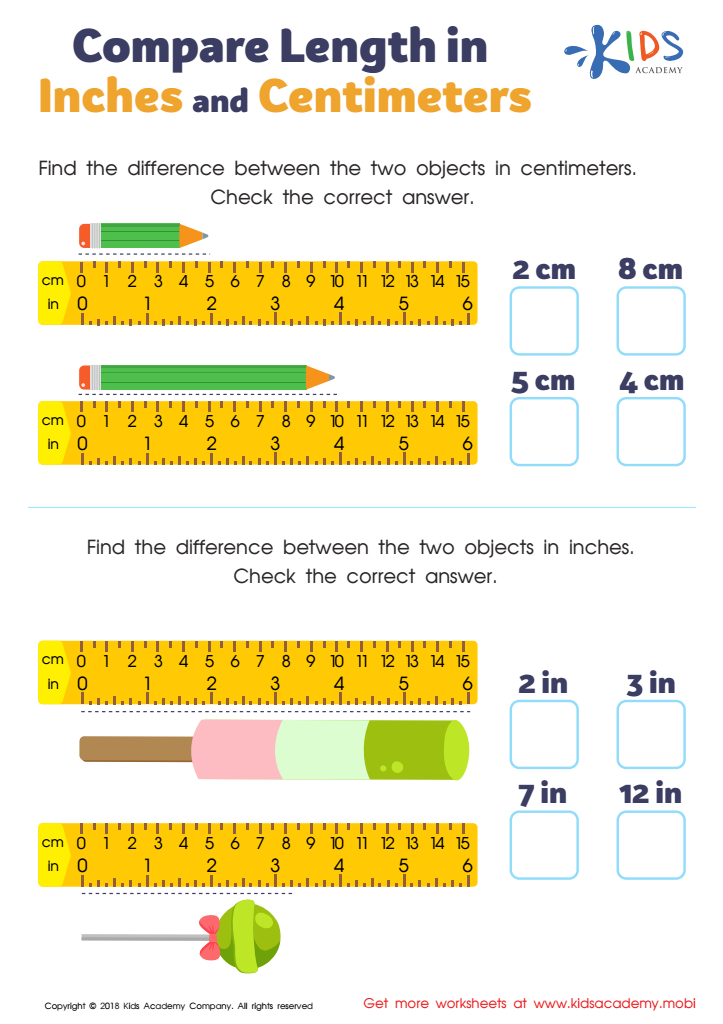

Compare Length in Inches and Centimeters Worksheet
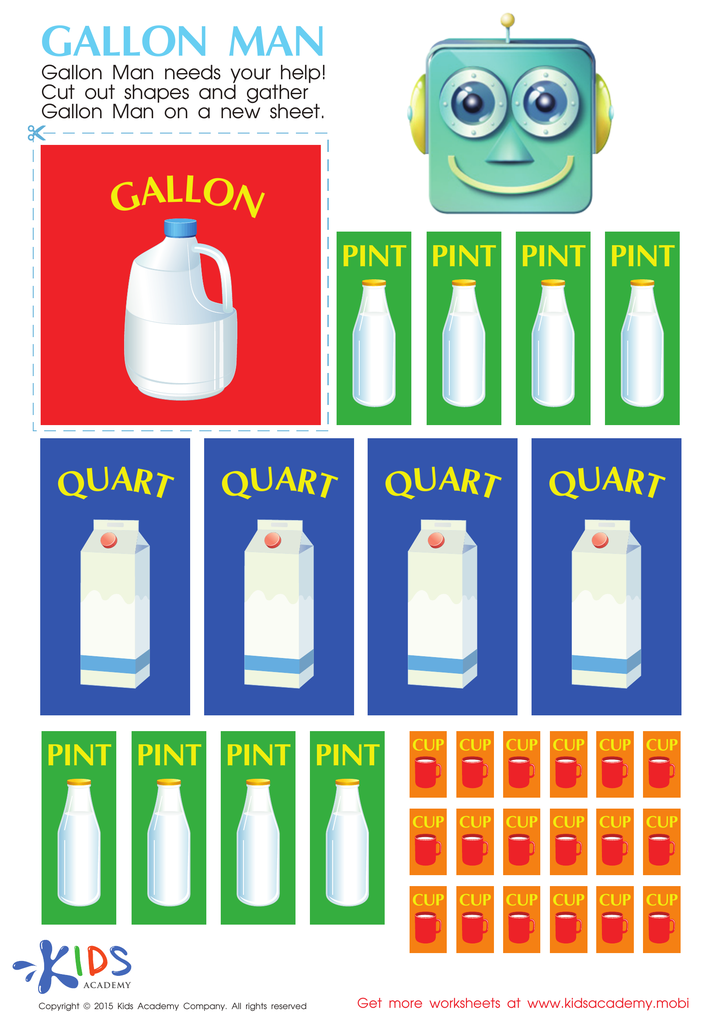

Cups, Pints and Quarts With Gallon Man Worksheet
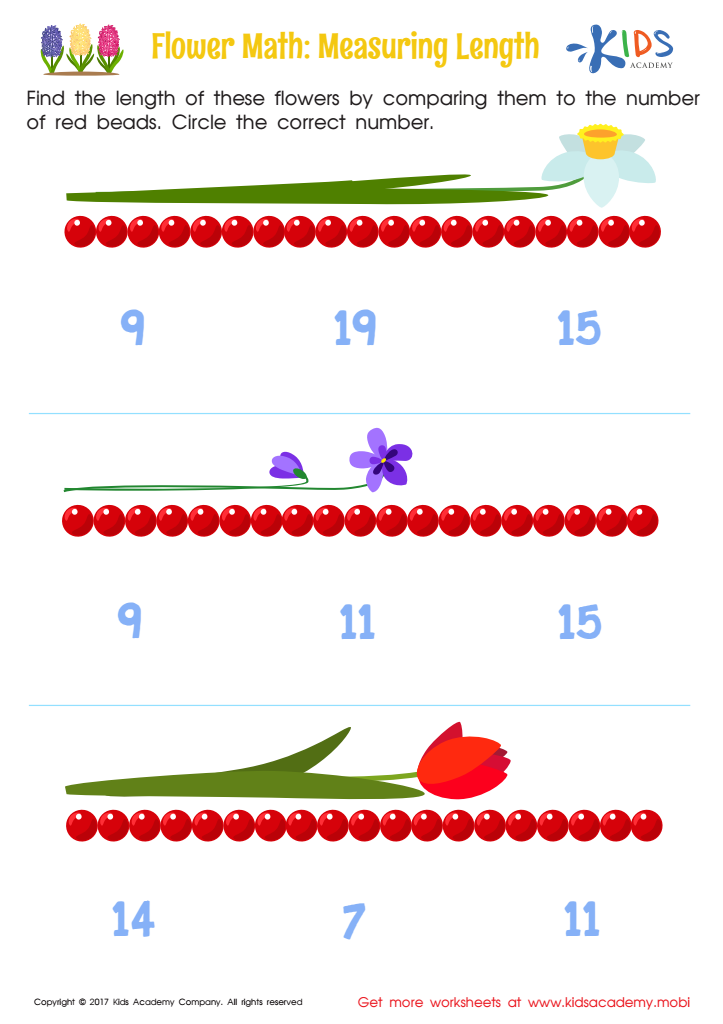

Flower Math: Measuring Height Worksheet
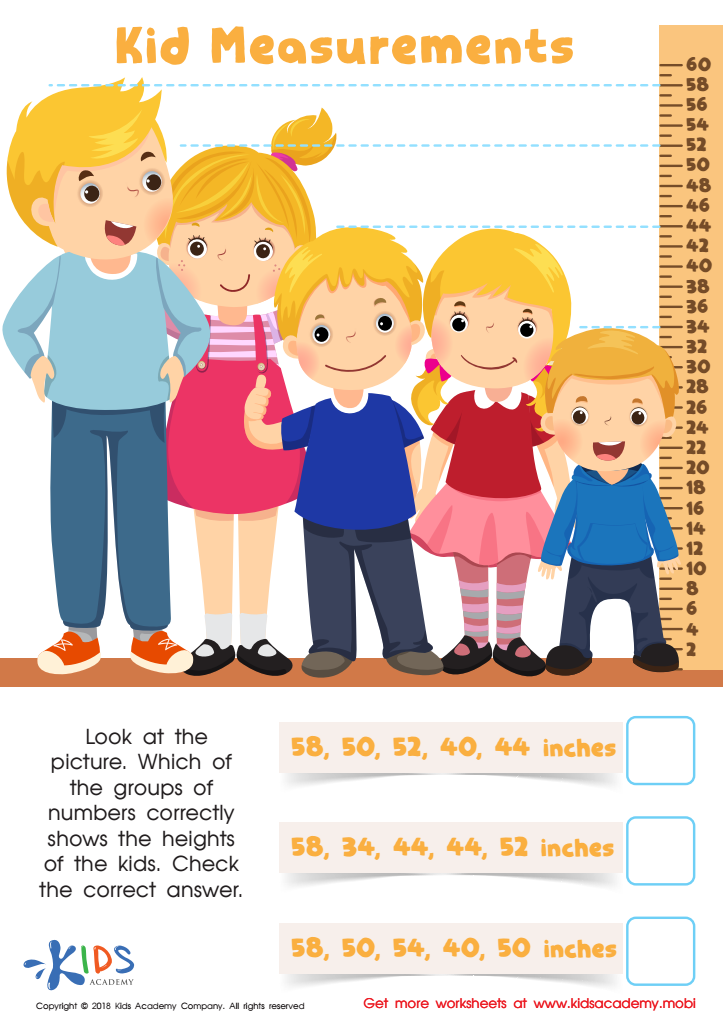

Kids Measurements Worksheet
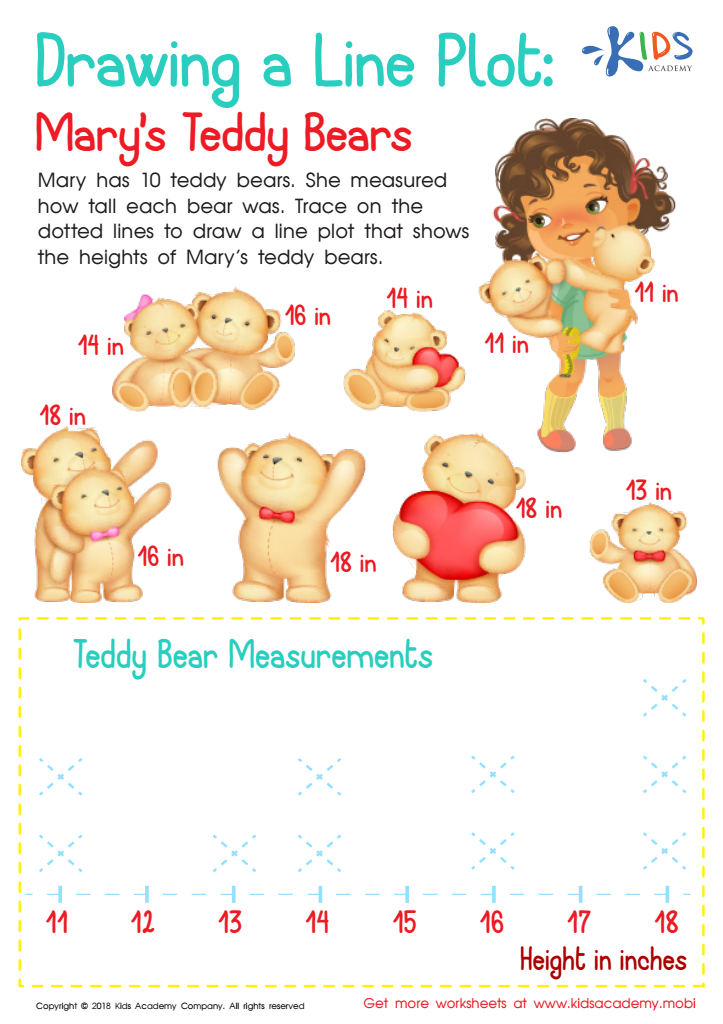

Drawing and Line Plot: Mary's Teddy Bears Worksheet
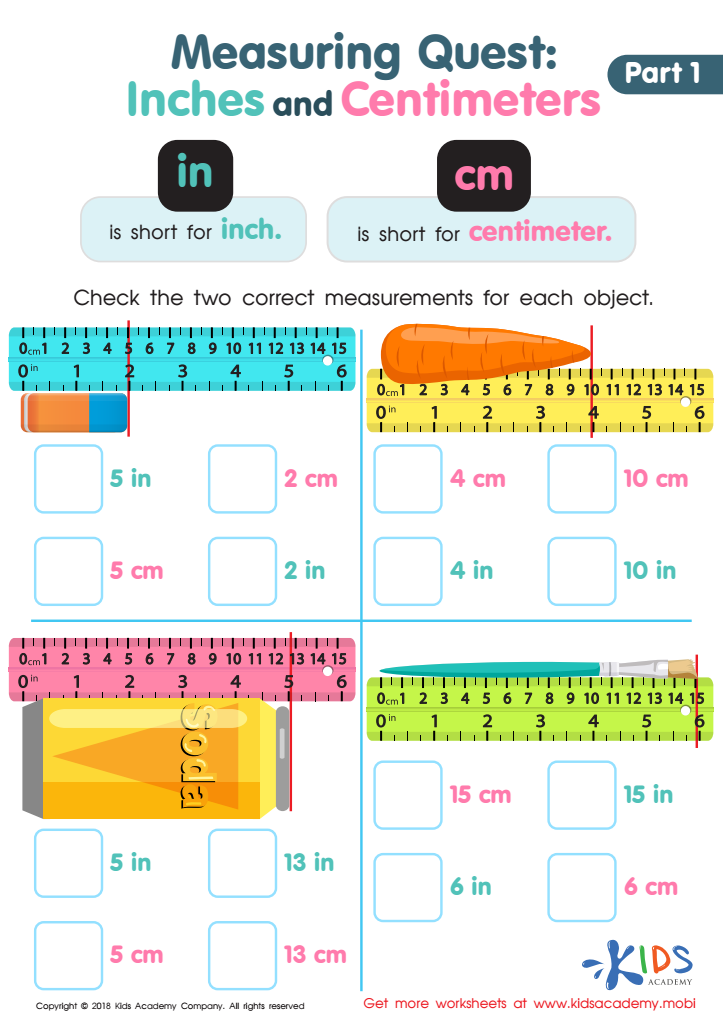

Measuring Quest: Inches and Centimeters Worksheet
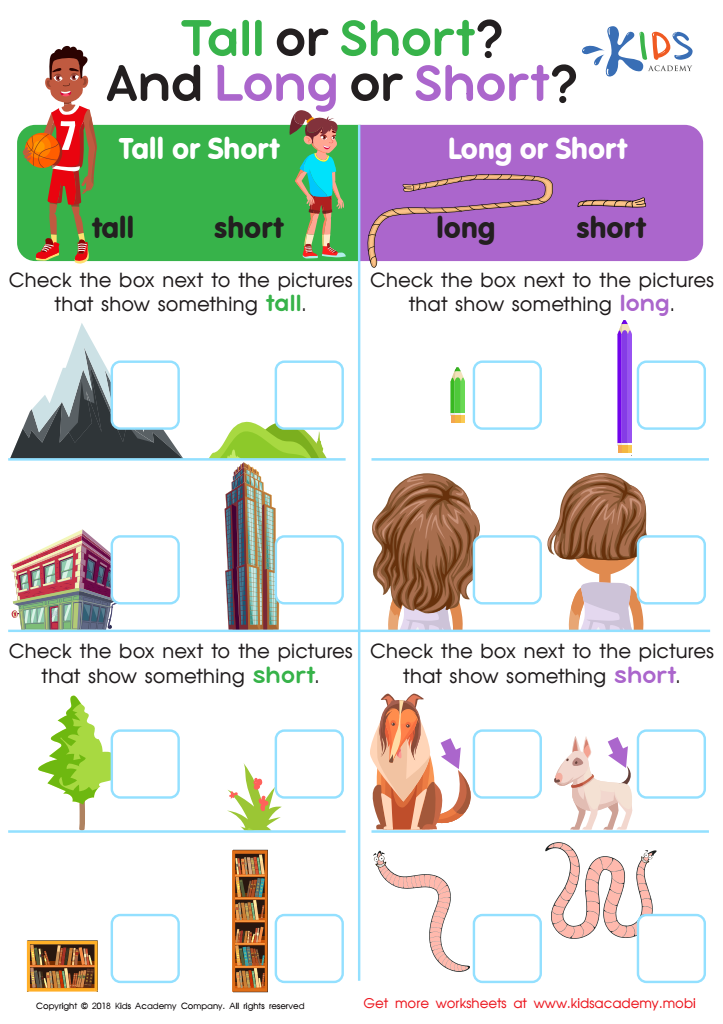

Tall or Short and Long or Short? Worksheet
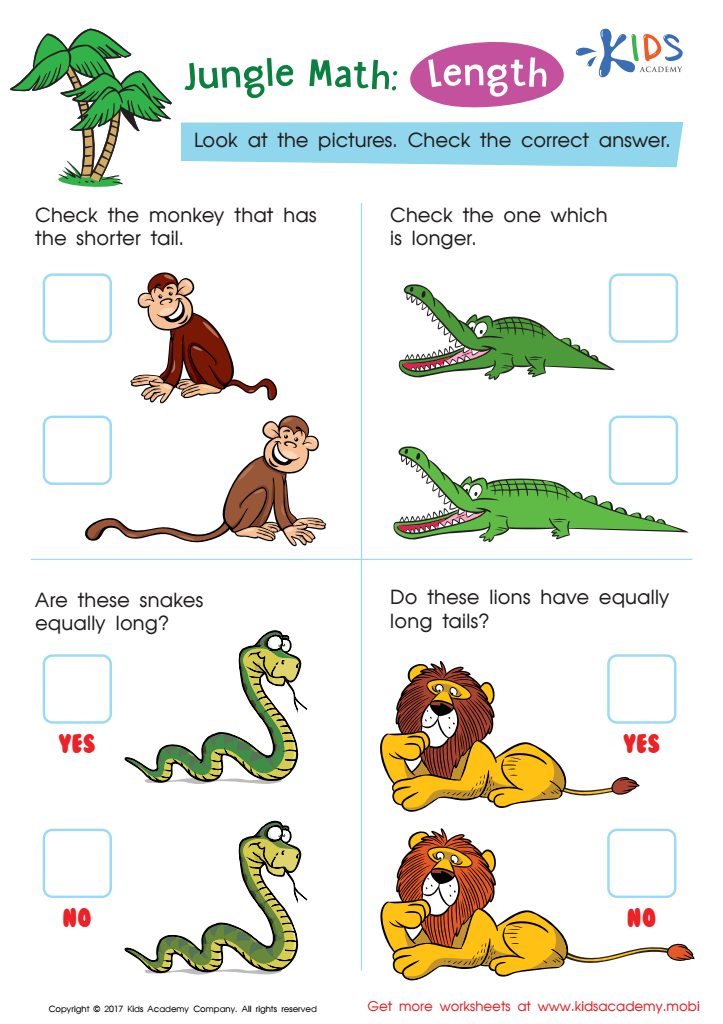

Which One Is Longer - Length Worksheet
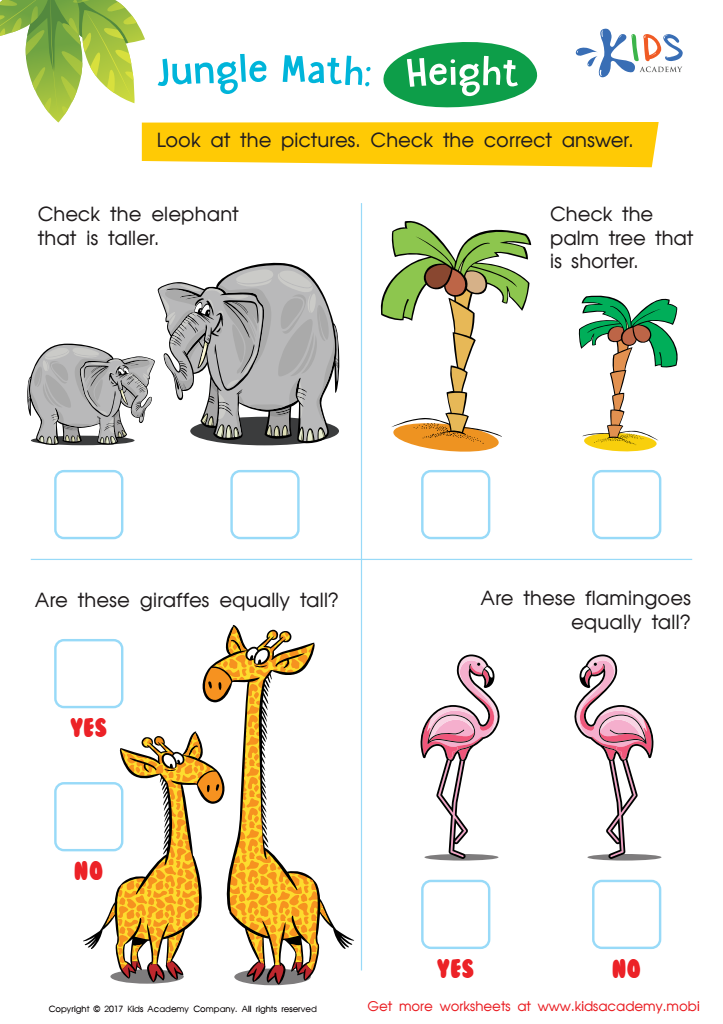

Which Is Taller Worksheet
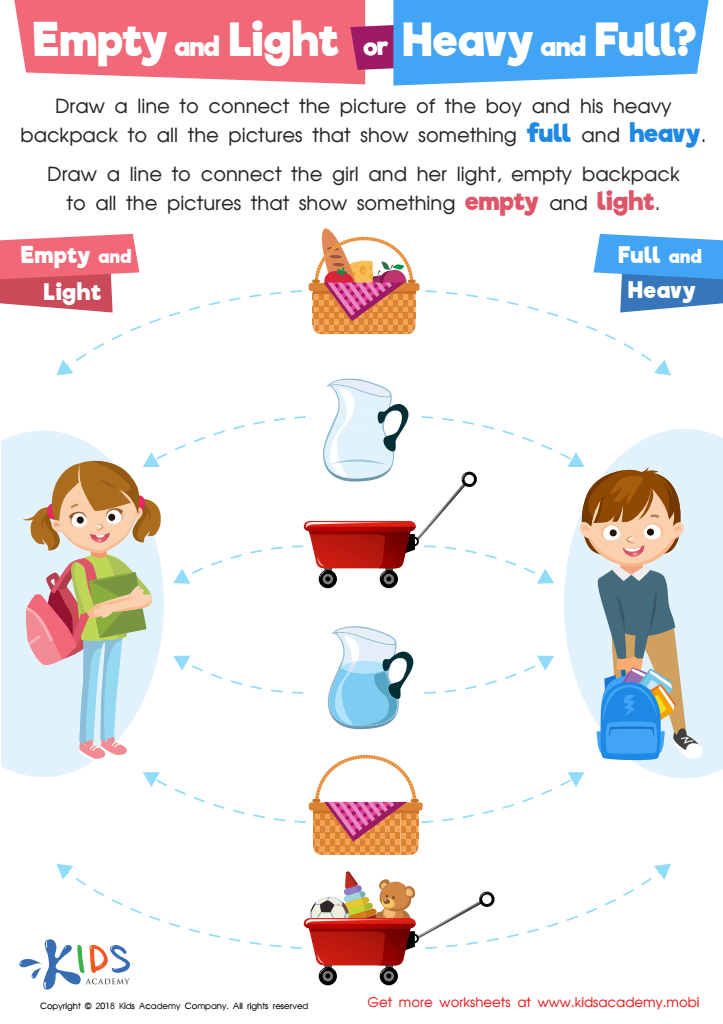

Empty and Light or Heavy and Full? Worksheet


Years Worksheet
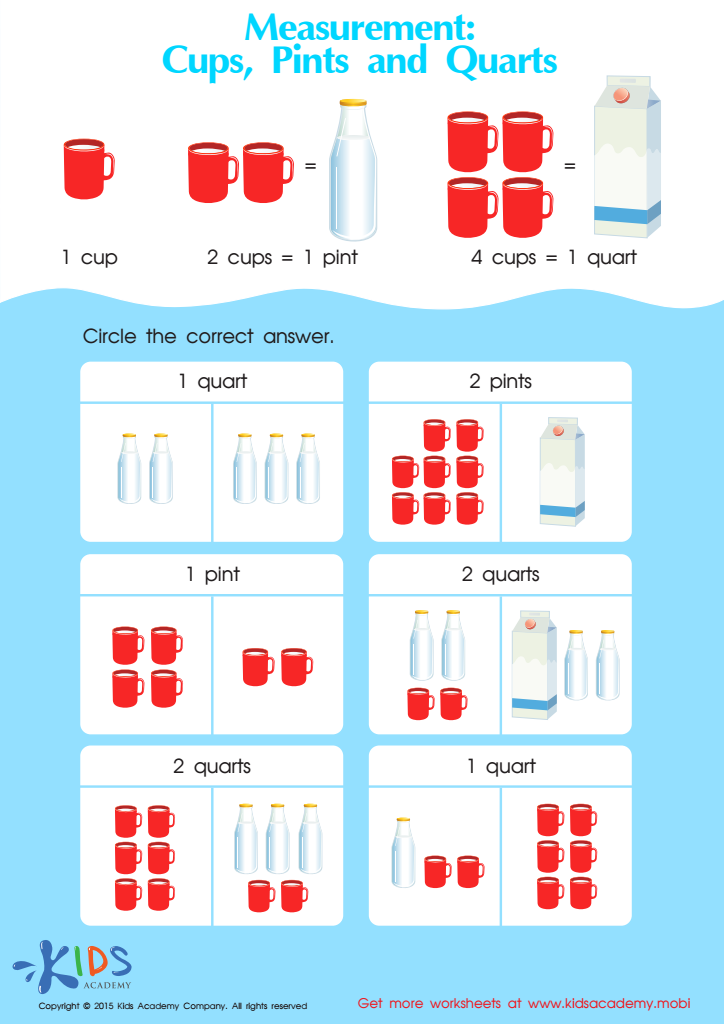

Cups, Pints and Quarts Worksheet
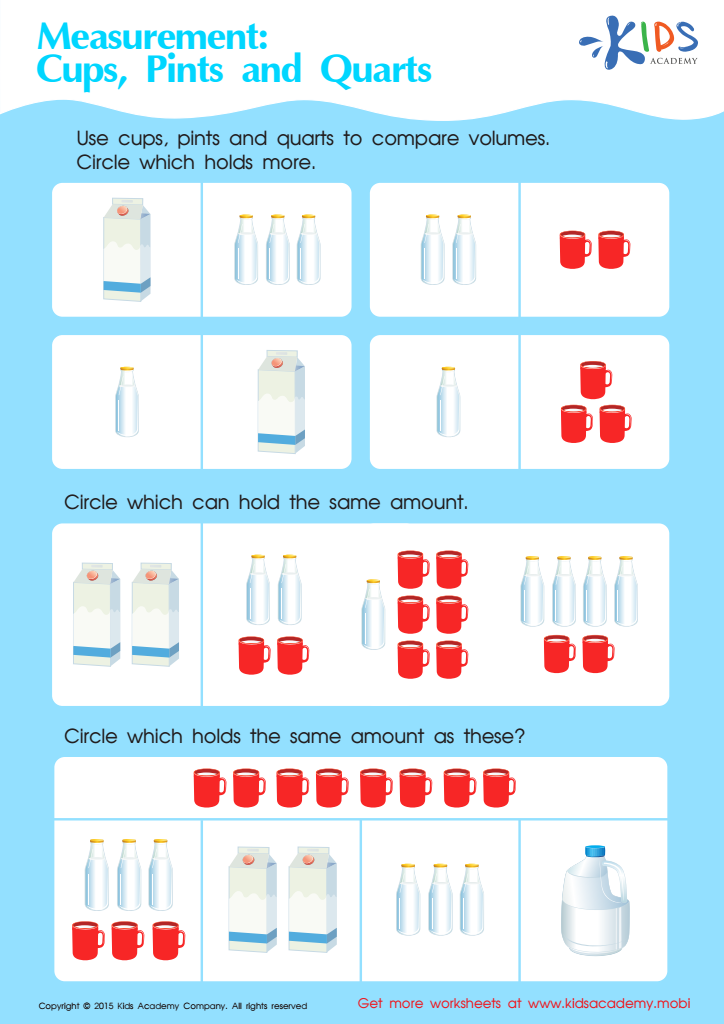

Measurement: Compare Volumes Worksheet
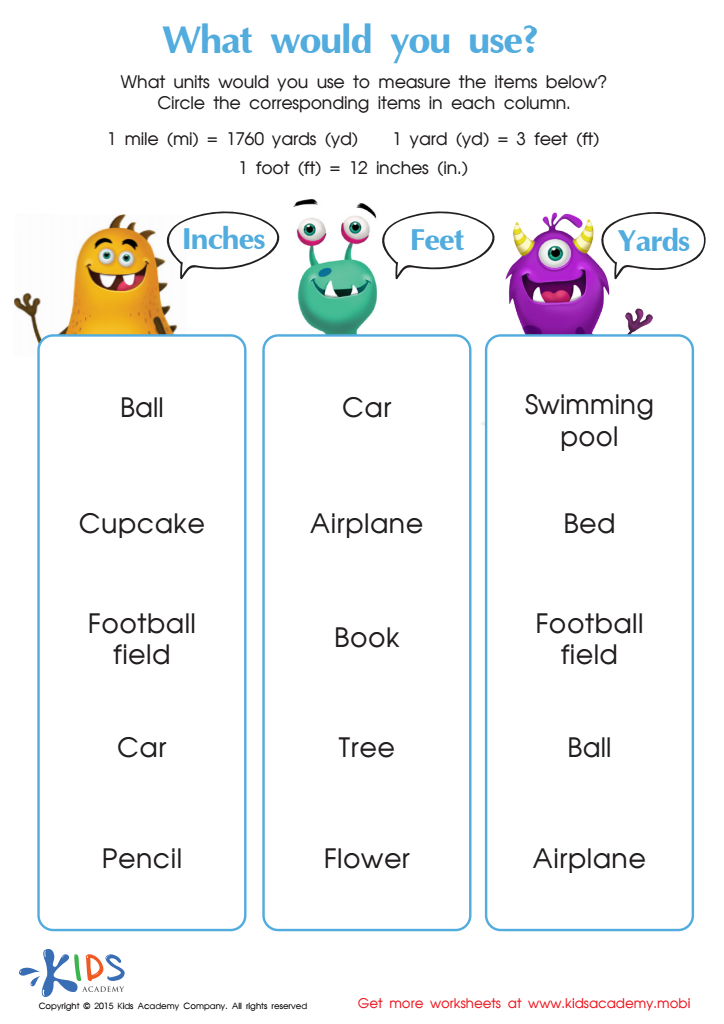

Learning about measuring objects in inches, feet and yards Worksheet
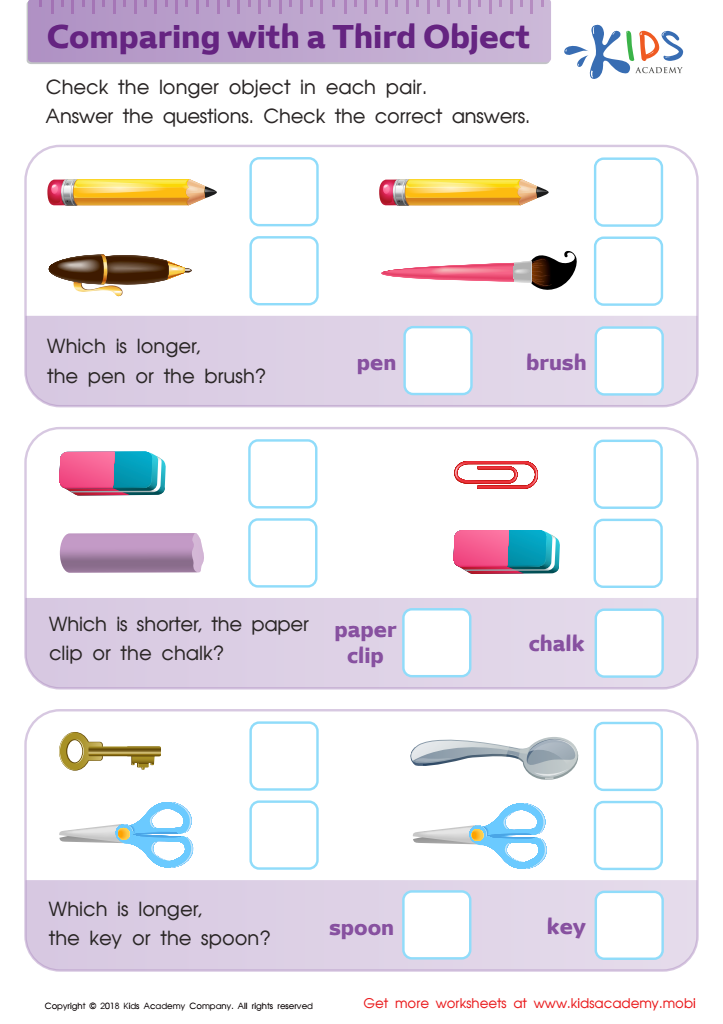

Comparing with a Third Object Worksheet
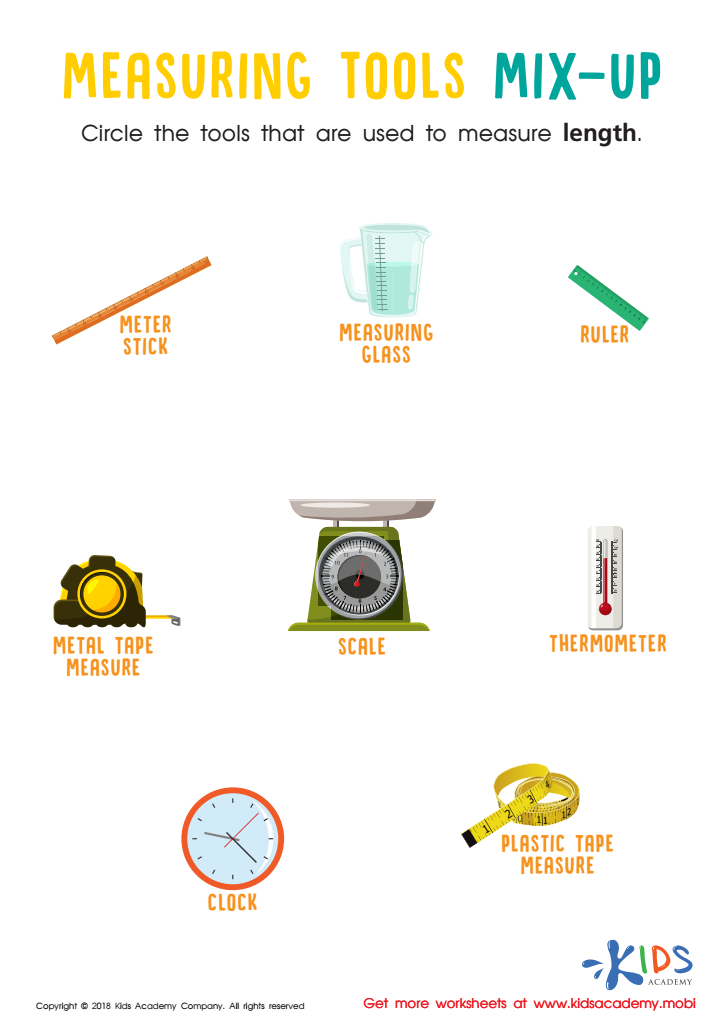

Measuring Tools Mix–up Worksheet
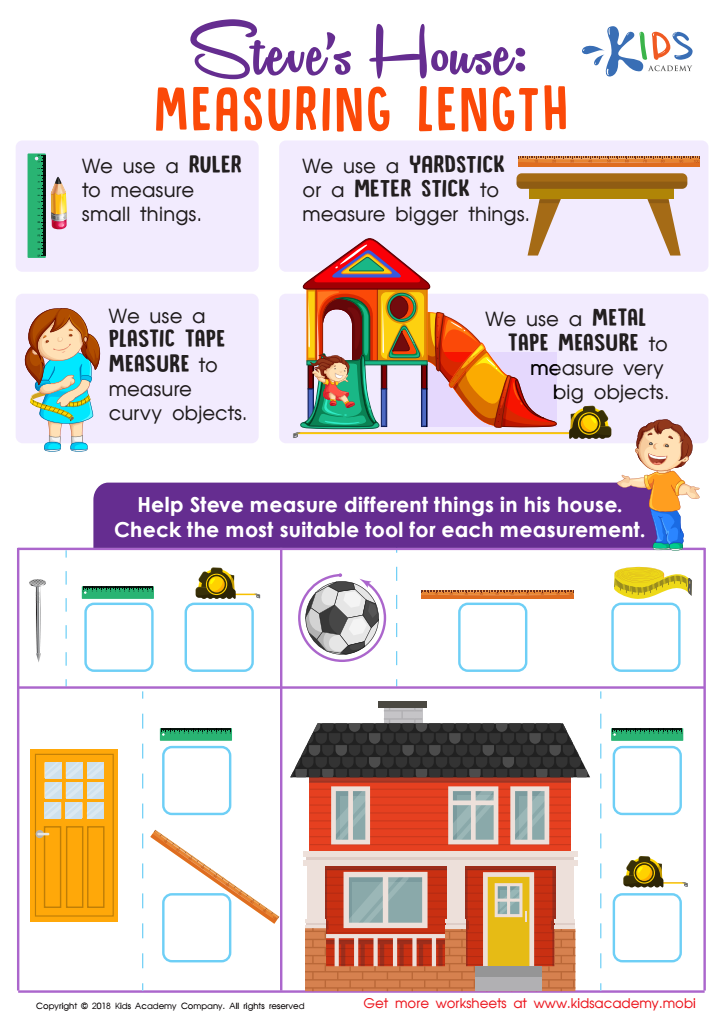

Steve's House: Measuring Length Worksheet
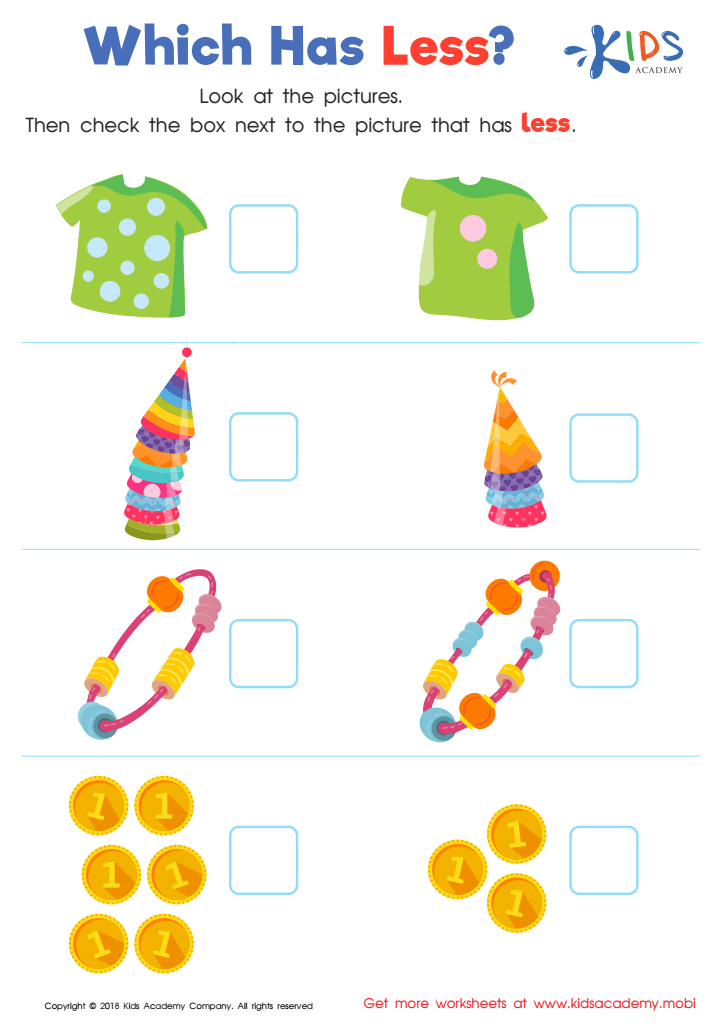

Which Has Less? Worksheet
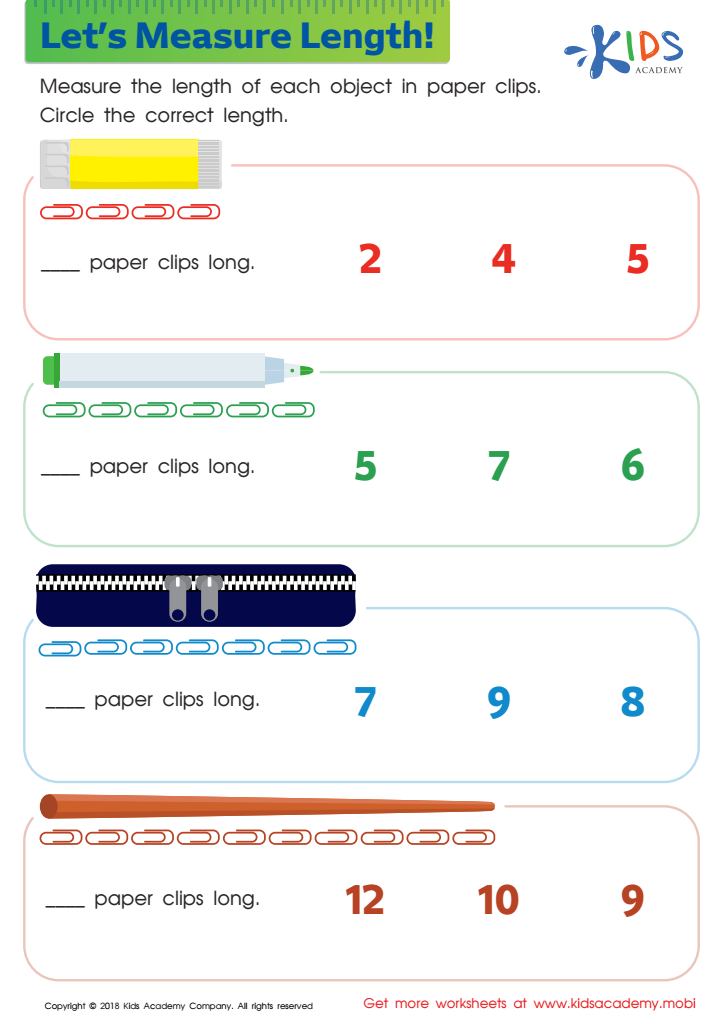

Lets Measure Length Worksheet
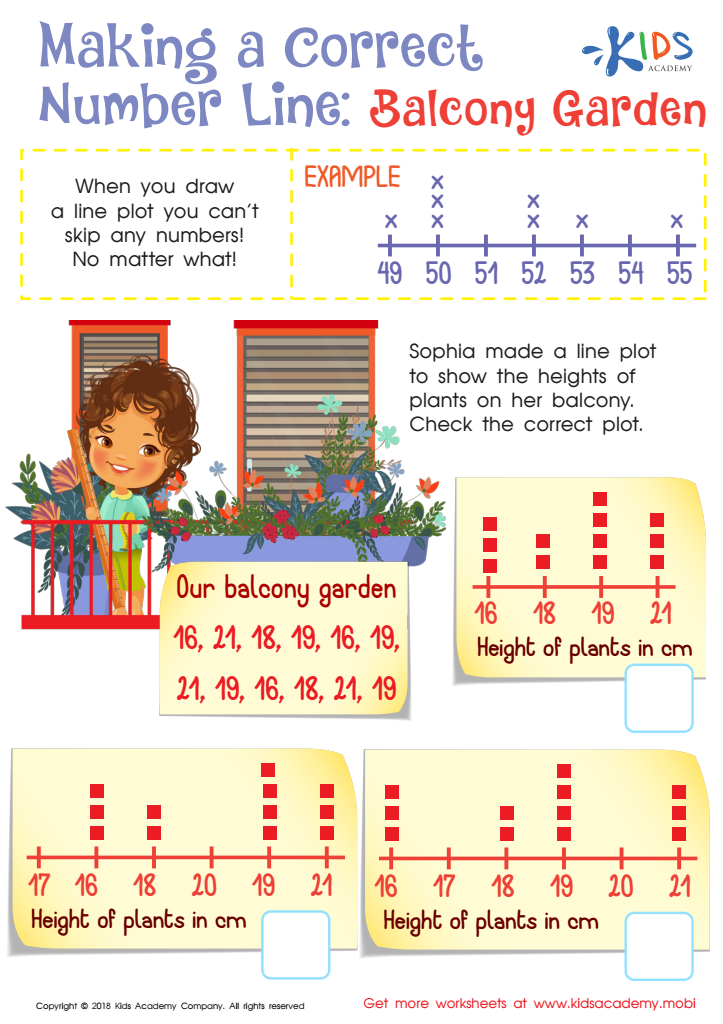

Making a Correct Number Line: Balcony Garden Worksheet
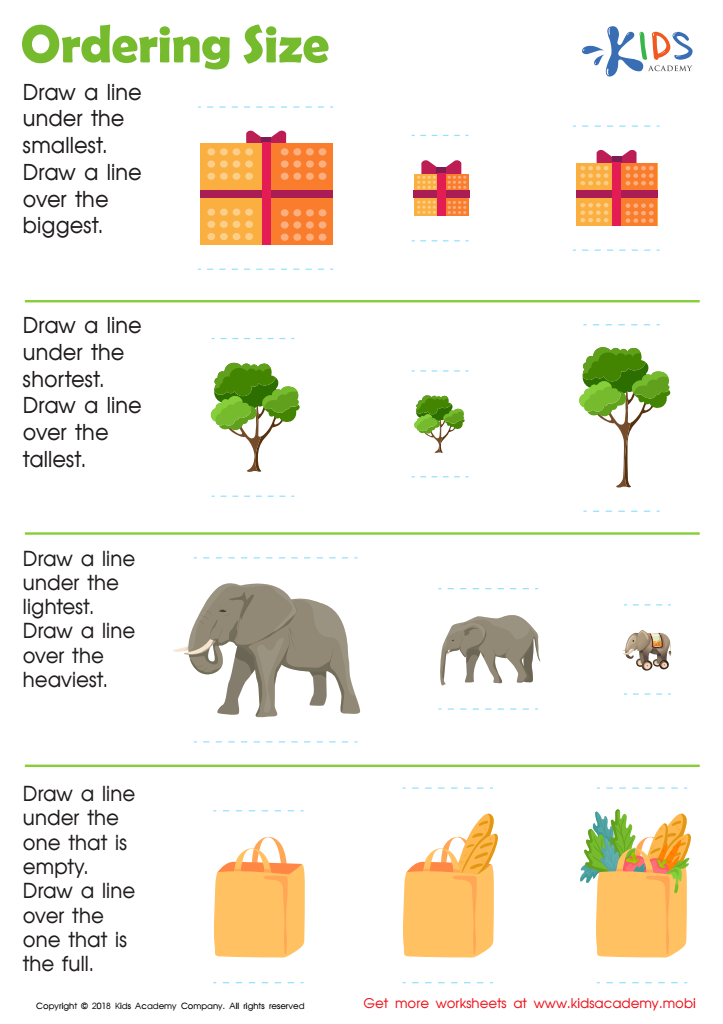

Ordering Size Worksheet
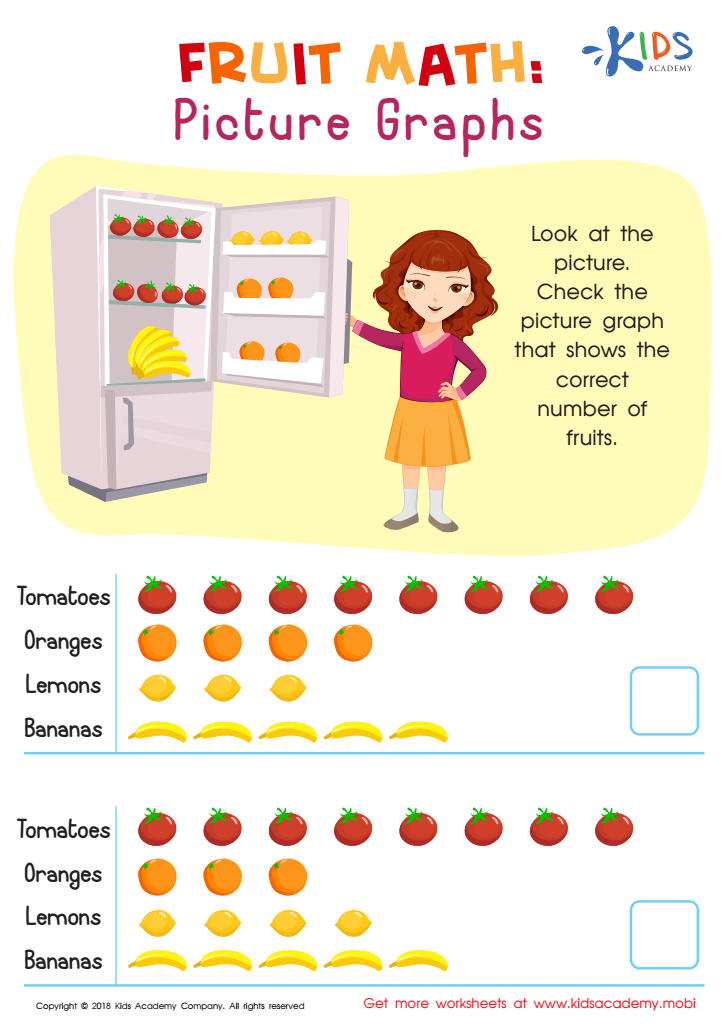

Fruit Math: Picture Graphs Worksheet
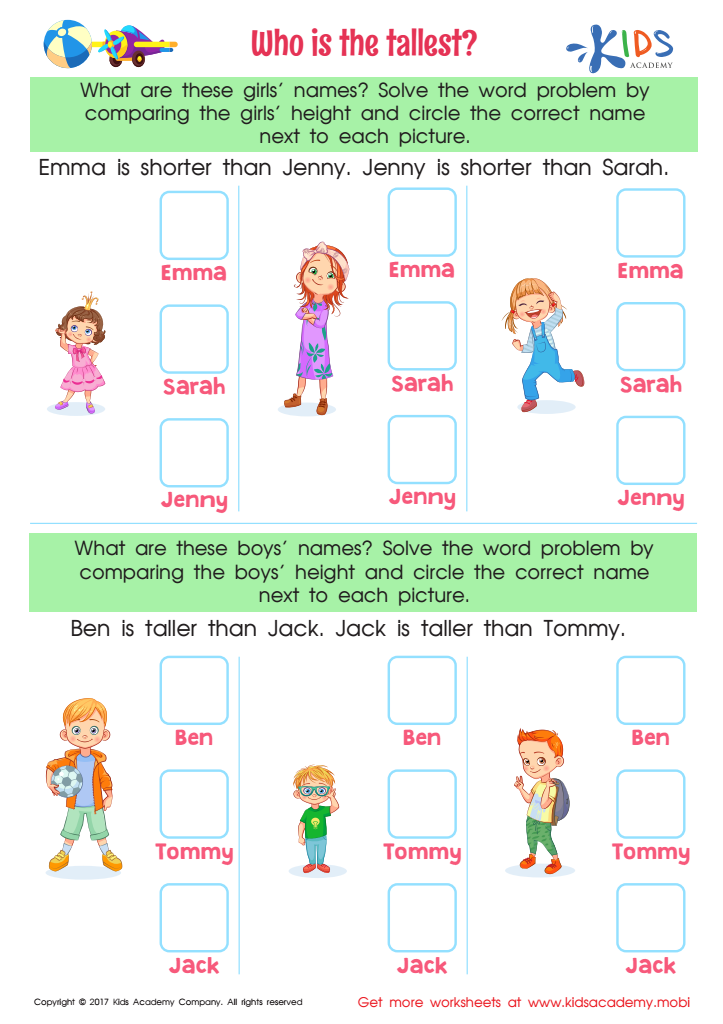

Who Tallest Printable
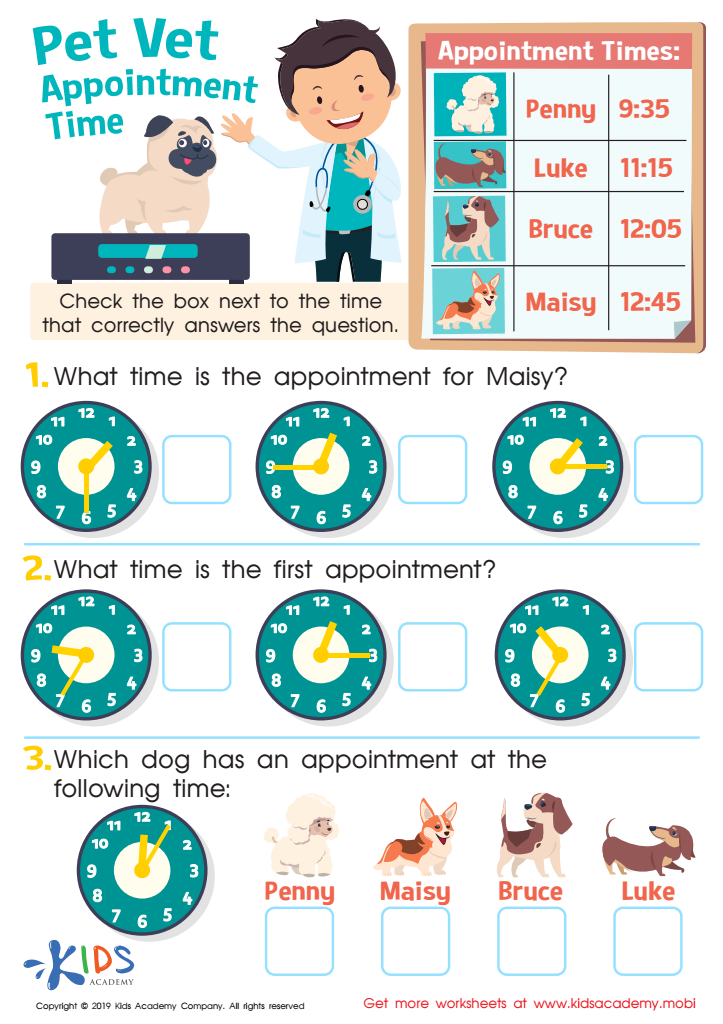

Pet Vet Appointment Time Worksheet
Measurement is a fundamental skill that supports children's cognitive development and understanding of the world around them. For parents and teachers of children aged 3-7, it's essential to appreciate the relevance of measurement in various aspects of a child's learning journey.
At this age, children are naturally curious and eager to explore their environment. Introducing concepts of measurement—such as length, weight, volume, and time—helps them make sense of their surroundings. When children compare sizes of different objects or measure ingredients for a simple recipe, they develop critical thinking skills and learn to problem-solve.
Moreover, measurement lays the groundwork for more advanced mathematical concepts, promoting numerical literacy which is crucial for future learning. Activities that embrace measurement often involve hands-on experiences, making learning fun and engaging. This interactive approach strengthens children's fine motor skills and promotes collaboration and communication as they share their findings.
Additionally, measurement can seamlessly integrate with everyday contexts, helping children understand its practical applications in daily life, from cooking to planning activities. Ultimately, fostering measurement skills in early childhood sets the foundation for lifelong mathematics understanding and confidence, making it vital for parents and educators to prioritize these learning experiences.

 Assign to My Students
Assign to My Students






















